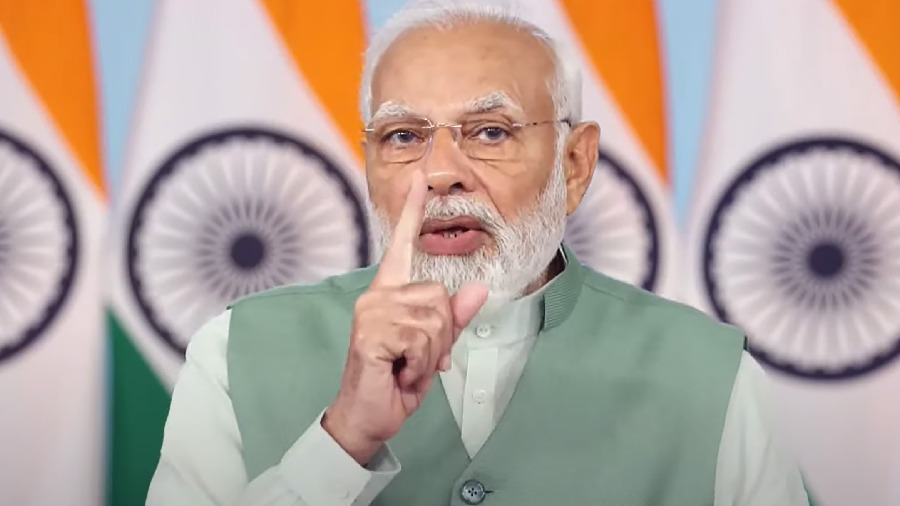India’s social milieu and political system are inching towards a totalitarian nightfall. In Juan José Linz’s terms, totalitarianism is a regime that stands for completely organising political life and society. A totalitarian regime treads beyond the control of the political system to politicise the masses and shape the individual in accordance with its ideology. Totalitarianism is, thus, the antithesis of the liberal constitutional order.
In Liberalism and its Discontents, Francis Fukuyama rightly observed: “If diverse societies like India or the United States move away from liberal principles and try to base national identity on race, ethnicity, religion, or some other substantive vision of the good life, they are inviting a return to potentially violent conflict...” India’s Hindutva shift catalyses the country’s psychological partition that is as apocalyptic as the political Partition of 1947 and provides the raison d’être for Political Islam, another avatar of totalitarianism, in South Asia.
Fukuyama points out that liberalism has been challenged in recent years not just by populists like Donald Trump, Narendra Modi and Recep Tayyip Erdogan but by the progressive Left as well. The Left critique of liberalism is based on socio-economic inequality born out of neoliberal policies followed across the globe after the withering away of the Soviet Union. Fukuyama opines that the answer to the Left and populist criticism of liberalism is not to abandon liberalism but to moderate it.
Classical liberalism, Fukuyama argues, can be understood as an institutional solution to the challenge of peacefully managing diversity in pluralist societies. This aspect of liberalism has immense relevance in India’s cacophonic socio-political milieu. Reclaiming the liberal moorings of India’s tradition and its liberal constitutional ethos is essential for India’s survival as a nation and State.
But India needs a vanguard for its liberal movement. The Swatantra Party founded by Rajaji provided such a potential political front for liberalism. In Swatantra Party: A Political Biography, V.P. Rasam pointed out that “The Swatantra Party sought to give continuity to the liberal ideology by advocating its policies and principles that were developed by M.G. Ranade and G.K. Gokhale...”Unfortunately, the Swatantra Party was a fugacious rainbow on the Indian political firmament.
India’s cultural ethos is fundamentally liberal. In Why I am a Liberal: A Manifesto for Indians who Believe in Individual Freedom, Sagarika Ghose writes that “liberal ways of thinking are found in the Upanishads, in the Bhakti movement, in the Sufi movements, in the numerous sects and reform movement across India which questioned idol worship and ritualism and pursued individual freedom and dignity. The Indian liberal tradition is neither confined to a small minority, nor elitist, nor Westernized nor simply restricted to any political party… It can be a badge of honor... [for] a believer in India’s Constitution.”
Indian liberalism and Hindu liberalism are intertwined. Hinduism is inherently liberal, and its shramana tradition entirely liberal. Ghose observes: “The true Hindu is a true liberal and the liberal Hindu is the true Hindu. Hinduism sits easily with liberalism because of its rejection of authoritarian power. The liberal’s skepticism of the Big State, faith in individual conscience and action and belief in enlightened individualism, finds many echoes in Hindu tradition which have never subscribed to a single belief system or a single church…But Hindutva is very opposite of these traditions...” Shashi Tharoor makes the point that it is precisely because Hindus form the majority in India that the country has survived as a plural, secular democracy (Why I am a Hindu).
Indian liberalism is a restless soul in search of a body. Indian liberals must arm themselves with the spirit of liberal politics to act as the white knight who will save the nation from the totalitarian dark night.
Faisal C.K. is Under Secretary (Law) to the Government of Kerala. Views are personal

